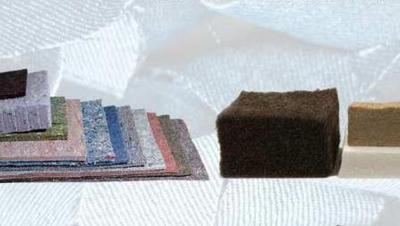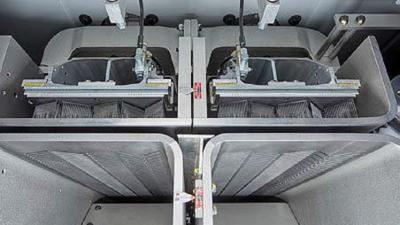
The textile industry is known for its high consumption of energy, water and resources. The transformation in the global textile industry has already begun. From June 8-14, 2023, the textile world will meet in Milan/Italy at the ITMA, the leading global sourcing exhibition dedicated to latest textile and garment technologies and solutions.
Transforming the world of textiles – that is this year’s ITMA motto. What is your response to this? What is the motto of your trade show participation?
This ITMA motto describes a guideline for a transformation process of the textile manufacturing industry which has been long overdue. All participants in the manufacturing of textiles, distribution, trade and of course the consumer, together with the specific machine building industry is called up in order to better reflect now and in the future the severe shortcomings of the related processes. This is to be considered in terms of the consumption of resources, i.e. textile fibers, agents for treatment and finishing, energy and water consumption, all this in the context of sustainability and associated with possible recycling of the mentioned resources. Although this issue had been brought up before and for a longer time, only now has the awareness of it dramatically increased in my opinion during the last 3 years.
Our ITMA presence is connected to these issues in a twofold way:
1.) By a real motto describing the basic features of our technological development “MicroPunch” as a “green needling technology for lightweights”. MicroPunch is a new nonwovens production technology which will allow considerable energy savings, fiber savings and is a process not consuming water.
2.) By a response to the issue “recycling” for used garment for example where Dilo has made organizational arrangements in cooperation with partners Dell’Orco & Villani as well as Technoplants in Italy. This will allow us to offer complete solutions for reclaiming fiber from garment waste and clippings and their further processing through different types of webforming and consolidation. In this cooperation structure DiloSystems will act as a general contractor to provide complete solutions which we call “RecycloLine”.
What is the most interesting topic/technology you will present at the ITMA?
MicroPunch and the features of the RecycloLine concept are our focus. This includes the presentation of a complete MicroPunch line as well as literature to describe our cooperation and partnerships to realize the RecycloLine concept.
With regard to the potential of energy savings through MicroPunch in the lightweight sector, we consider it a breakthrough that energy savings in an amount of about between 70% and 80% can be realized, both for electric energy and heating gas. Also, the fiber material consumption is reduced, and water consumption not applied in a purely mechanical needling process.
What do you hope/expect from the ITMA 2023?
Since Dilo is in a position to offer now the perspective of needling lightweights in a very economical and ecological way for the first time we have hopes that this will create an impact to decision makers and be recognized as a strategic tool to penetrate new markets as for example the hygiene sector and medical sector for companies which are already needling products in the higher weight range. The potential for considerable energy savings is currently and will for the foreseeable future also remain an issue to be taken care of.
We therefore expect that the momentum of current interest already visible during Index 2023 is carried on and will result in inquiries to support our customers’ product development activities for different sectors of application. Dilo will be offering this service through our Textile Research Centre where the exhibited machinery will be reinstalled after ITMA, ready to investigate and study the future potential for needled lightweights.
What are the biggest challenges for the textile industry right now?
As mentioned above the problems caused by the amounts of textile waste need to be addressed together with goals of energy and water savings. These issues will call for action not only for economic reasons but also since legislation and consumer behavior show the awareness that times have changed.


